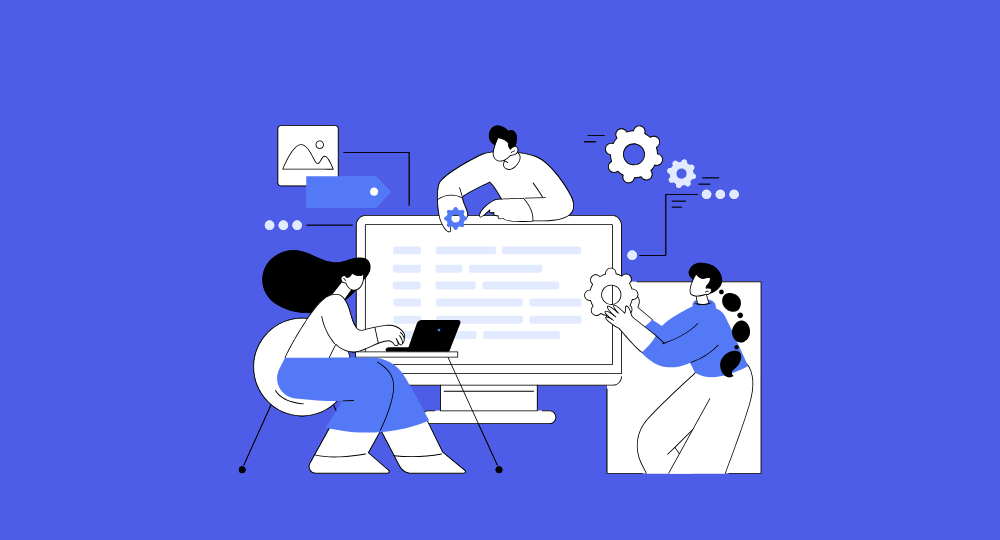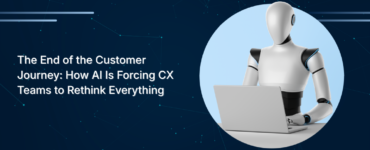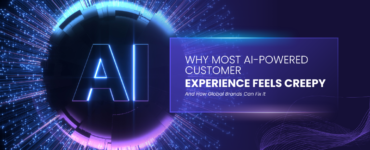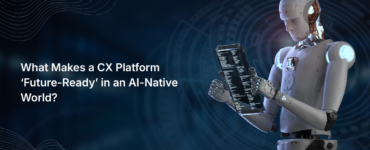Software development is evolving at a rapid pace, and Artificial Intelligence (AI) is at the heart of this transformation. Businesses across industries are integrating AI into their development lifecycle to enhance productivity, reduce errors, and create intelligent, data-driven applications.
According to Statista, the AI software market is projected to reach $126 billion by 2025, up from $10 billion in 2018. This explosive growth reflects the confidence of tech leaders in AI’s ability to enhance productivity, reduce costs, and deliver high-quality software faster.
The implementation of AI in software development is enabling companies to go beyond traditional coding practices. From generating code snippets to automating testing and optimizing user experience, AI is redefining how software is designed, developed, and delivered. This strategic shift is not just about adopting a new technology—it’s about building smarter and faster digital solutions that align with modern business needs.
In this article, we explore how AI empowers businesses to build NextGen software, the benefits it offers, real-world use cases, and best practices to successfully integrate AI in your development strategy.
Why AI in Software Development is a Game-Changer
Traditionally, software development has been time-consuming, error-prone, and expensive. AI is revolutionizing this by automating repetitive tasks, analyzing large data sets for better decision-making, and even writing code.
Here’s how AI is transforming software development:
- Code Generation and Review
- Bug Detection and Fixing
- Predictive Analytics
- Smart Testing Automation
- Personalized UX Design
- Natural Language Processing (NLP) for Requirements Gathering
These AI-driven capabilities are helping businesses build high-performance applications with increased speed and reduced human effort.
Key Benefits of Using AI in Software Development
1. Faster Time-to-Market
AI significantly reduces the time spent on repetitive tasks like bug fixing, testing, and code review. According to Accenture, organizations that use AI in software development can reduce their time-to-market by up to 50%.
By automating repetitive tasks, AI frees up developers to focus on more complex issues, speeding up the software development cycle.
2. Cost Reduction
AI reduces the need for large, resource-heavy development teams by automating tasks. According to a Gartner report, AI adoption in software development can cut operational costs by 40-60% due to the automation of processes such as testing, code generation, and maintenance.
This also allows businesses to reallocate resources toward innovation, leading to more efficient use of capital.
3. Improved Code Quality
AI-driven tools help in early detection of bugs and ensure that the code adheres to the best coding practices. SonarQube, for example, uses AI to identify security vulnerabilities, code smells, and duplications that might go unnoticed in manual reviews.
A survey by Stack Overflow revealed that 73% of developers believe AI tools improve the overall quality of the code by identifying issues early in the development process.
4. Smarter Decision-Making
AI tools analyze historical data, usage patterns, and performance metrics to guide software development decisions. Google’s AI-based recommendation engine powers smart features on various platforms, from YouTube to Google Maps, all based on continuous data analysis.
AI-driven analytics also help businesses forecast user needs and predict potential system failures before they occur, improving the reliability of software.
5. Enhanced User Experience
AI can monitor and adapt to user interactions with applications in real-time, providing insights that allow businesses to personalize the user experience. For example, Netflix uses AI algorithms to recommend content based on user behavior, improving engagement and user satisfaction.
AI also facilitates the creation of dynamic and adaptive interfaces that learn and evolve based on user preferences.
Use Cases: AI-Powered Software Development in Action
1. AI-Based Code Assistants
AI tools like GitHub Copilot, powered by OpenAI’s Codex, have transformed how developers write code. According to GitHub’s State of the Octoverse, Copilot has already been adopted by over 1 million developers, helping them write code more efficiently by auto-suggesting functions, methods, and even full code blocks.
2. Automated Testing
AI-powered testing tools, like Testim and Applitools, automate the testing process, adapt to code changes, and improve test coverage. Applitools, which uses visual AI, can perform thousands of tests across multiple platforms, ensuring that applications are bug-free.
According to Forrester, businesses that implemented AI testing reported a 30-40% improvement in testing efficiency and a 25% decrease in post-release bugs.
3. AI in DevOps
In DevOps, AI helps with predictive monitoring, performance optimization, and automated deployment. Companies like Netflix and Amazon leverage AI to predict system failures before they occur and ensure smooth app deployments.
The 2023 State of DevOps report revealed that AI adoption in DevOps can increase software delivery speed by up to 30% while improving system uptime and reducing operational costs.
4. Requirement Analysis via NLP
AI-powered Natural Language Processing (NLP) can interpret business requirements and translate them into actionable tasks. Tools like Aqua leverage NLP to read documentation and convert user needs into software specifications, reducing the time spent on manual requirements gathering.
According to a study by Harvard Business Review, companies using AI-powered NLP tools saw a 40% improvement in the accuracy of requirement specifications and a 20% faster time-to-market.
Best Practices for Implementing AI in Software Development
- Start with Small AI Projects: Begin by incorporating AI in specific tasks, such as bug detection or code reviews. Gradually scale to more complex tasks like test automation or predictive analytics.
- Choose the Right AI Tools: Research AI tools that integrate well with your existing tech stack. For example, if you’re using JavaScript, Tabnine might be the right AI code assistant for your team.
- Upskill Your Team: Invest in training programs for your developers and testers to ensure they can leverage AI tools effectively. A report by Deloitte found that 64% of companies with AI strategies in place provided AI training to their teams, leading to 30% higher productivity.
- Focus on Data Quality: AI systems are highly dependent on high-quality, clean data. Implement data quality management practices to ensure AI models are trained effectively.
- Ensure Ethical AI Use: Establish clear guidelines to ensure AI algorithms are used responsibly. This includes avoiding biases and ensuring transparency in AI-driven decisions.
Future Trends of AI in Software Development
- AI-Powered Low-Code Platforms
Low-code platforms that integrate AI are transforming the way businesses develop applications. According to Gartner, the low-code application development market is expected to grow by 23% annually. - AI-Driven Project Management
AI tools are becoming increasingly capable of forecasting risks, managing resources, and optimizing timelines. According to McKinsey, AI can reduce project overruns by 15-20%. - Hyper-Personalized Applications
AI will continue to drive hyper-personalization in applications, allowing businesses to create solutions that continuously adapt to user preferences. - Autonomous Software Engineering
In the coming years, AI systems will likely handle the entire software development lifecycle—from design to deployment—with minimal human intervention.
Final Thoughts
AI is a revolutionary force in software development, offering businesses the ability to create smarter, faster, and more reliable applications. By incorporating AI into their development processes, companies can significantly reduce costs, improve software quality, and meet evolving customer demands faster.
The future of AI in software development is bright, with innovations like AI-powered code generation, automated testing, and intelligent UX design taking center stage. Early adoption of these technologies will enable businesses to lead in their respective industries.




